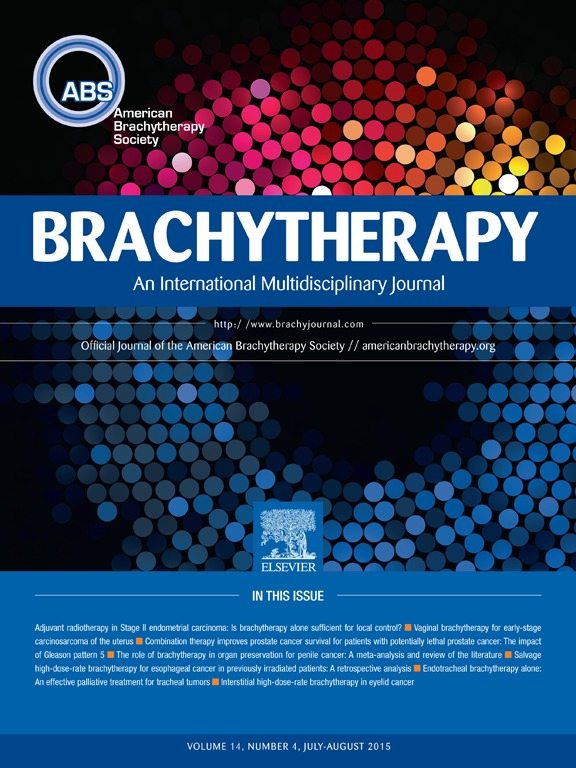Comparison of low and intermediate source strengths for (125)I prostate brachytherapy implants.

Abstract
PURPOSE:
To compare the implant quality and clinical outcomes for patients treated with low and intermediate strength (125)I seeds in prostate brachytherapy implants.
METHODS AND MATERIALS:
This retrospective review included 390 consecutive patients treated with prostate brachytherapy from 1999 to 2006. The first 142 patients were implanted with source strengths lower than 0.415U (0.327mCi), with the subsequent 248 patients implanted with source strengths higher than 0.493U (0.388mCi). Clinical, dosimetric, toxicity, and outcome data were compared between these two cohorts of patients.
RESULTS:
Despite having similar prostate volumes, fewer sources (median, 95 vs. 113; p<0.0001) and fewer needles (median, 23 vs. 29; p<0.0001) were implanted in the intermediate strength cohort. The postimplant dosimetry demonstrated better quality implants in patients treated with intermediate strength sources (median D90, 160.0Gy vs. 139.6Gy; p<0.0001), with greater dose inhomogeneity identified in the intermediate strength cohort of patients. A higher incidence of late rectal toxicity was identified in patients treated with intermediate strength sources despite lower rectal doses in this cohort. The biochemical relapse-free survival, prostate cancer survival, and overall survival were not significantly different between the two cohorts.
CONCLUSIONS:
The transition from low to intermediate strength sources has led to fewer resources being used and improved postoperative dosimetry. Although there were more rectal complications identified in the intermediate strength cohort of patients in this analysis, there were no other significantly worse clinical or biochemical outcomes for patients implanted with intermediate strength sources.
